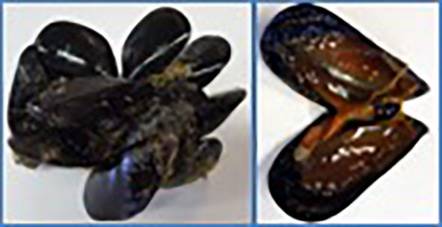
NEW PUBLICATION about Glyphosate effect on the mussel Mytilus galloprovincialis
Pubblicato il: 09.10.2019 14:25
Title: Ecotoxicological hazard of a mixture of glyphosate and aminomethylphosphonic acid to the mussel Mytilus galloprovincialis.
Glyphosate (GLY, N-phosphonomethylglycine) is one of the most used non-selective herbicides worldwide to control plant growth in forestry, urban areas and aquaculture. After its application, part of the herbicide does not reach leaves and is not absorbed by plants, but deposits on the ground, where it can be degraded, immobilized or leached. Degradation of GLY is a microorganism-mediated process that transforms the compound to aminomethylphosphonic acid (AMPA). In aquatic ecosystems (including seawater), GLY and AMPA are detected at relatively high concentrations (up to mg/L).
Considering that i) GLY and AMPA can be found together in seawater and that ii) the breakdown products can be more toxic than the parental compounds, in the present study we evaluated for the first time the impact of a mixture of GLY (as active ingredient) and AMPA on various cell and tissue biomarkers of a non-target aquatic species, namely the mussel Mytilus galloprovincialis.
This study demonstrated that exposure for 7, 14 and 21 days to a mixture of realistic concentrations of GLY and AMPA influenced markedly cell and tissue biomarkers in M. galloprovincialis. Although further studies are necessary to elucidate better the mode of action of the contaminants tested, results obtained suggest a potential ecotoxicological risk for bivalve molluscs.
This research was supported by the Department of Biology of the University of Padova (Project PRID-Seed “Ecotoxicological risk assessment for the herbicide glyphosate and its main degradation product, aminomethylphosphonic acid, in bivalves”).
Valerio Matozzo is Associate Professor of Ecology at the Department of Biology. His expertise predominantly lies in aquatic toxicology. He is studying the effects of a wide range of stressors to aquatic invertebrates (mainly bivalves and crustaceans), focusing particularly on immunotoxic effects of both emerging contaminants (e.g., pharmaceuticals and personal care products, herbicides) and changing environmental factors (e.g. temperature, salinity, oxygen). In 2004, he won the “Sebastiano Geraci” award announced by the Italian Society of Marine Biology. At present, he is author/coauthor of about 90 papers published in peer-reviewed journals.





